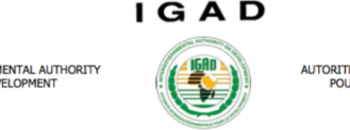IGAD summary of government position during peace consultations

The Intergovernmental Authority on Development (IGAD) made a summary of different positions of the three groups that participated in the intensive interlinked consultations in Addis Ababa. Here are some positions of the unity government obtained by Radio Tamazuj.
Structure of TGoNU
- Retain status quo and the incumbent President, 1st Vice President, and Vice President.
- Office of the President
- Incumbent President
- Incumbent First Vice President
- Incumbent Vice President
- 3 Assistants to the President
Creation of the Office of additional Vice President
As a compromise, TGoNU will accept to create a new position of Vice President which would go to SPLM/A-IO, but would not be filled by Dr. Machar. TGoNU would continue to reflect on what other appropriate role Dr. Machar could play during the transition.
Composition of the Executive
- Incumbent President
- Incumbent First Vice President
- Incumbent Vice President
- 3 Assistant Presidents (1 to TGoNU, 2 TO Opposition, one of whom shall be a woman)
- The ministers
Ministerial Clusters: TGoNU to maintain the three clusters (governance, economy, and service) each headed by a Vice President and deputized by an assistant to the president.
Prime minister etc: TGoNU rejects the creation of the position of a Prime Minister, a technocratic or hybrid government.
System of Government, Federalism
TGoNU rejects immediate introduction of a federal system of government as being inconsistent with the 2015 peace agreement.
Composition of Executive:
TGoNU will consider slight reduction of its allocation of the ratio 80:20 ratio for the further inclusion of the opposition
- Ministers: Retains its proposal of 42 to be allocated per the above 80:20 ratio
- Deputy Ministers:
- Increase number of deputies to 15 and apply the ratio of 80:20
- TGoNU suggests that a Deputy Minister should not necessarily belong to the same party as the minster.
On TNLA (The Parliament):
- TGoNU is not prepared to displace current members, as this would be politically untenable and counter-productive.
- However, the TGoNU proposes limited increase of the 400 to 440 with the additional 40 being allocated to the opposition for inclusivity.
Number of States
- The question of the number of states is for the people of South Sudan to decide. TGoNU expresses a strong popular demand for the creation of even more states.
- Therefore the views of the people of South Sudan should be sought on the matter.
- TGoNU invites IGAD to consult the people of South Sudan to ascertain their views on the question of States.
- GToNU is open to assigning to a National Border Commission the task of reviewing and addressing issues of State border disputes.
Power-sharing in States: TGoNU maintains the ratio of 85:15 to apply to all the states.
Discussion on security
- Integration of Forces/One National Army
TGoNU proposes 120 days (The Pre-transitional Period) for the completion of integration of forces. The Transitional Period should commence with One Army.
- Security of Juba during Transitional Security of Opposition leaders
- TGoNU maintains that the government will continue to be responsible for protection of Juba
- TGoNU is open to Third Party protection that is satisfactory to the opposition, and will cooperate with facilitating the practical arrangements for this.
- Demilitarization of Civilian Centers:
- This is unrealistic because forces historically coexist with the civilian population, often along with families, the better option is to enforce strict regulation on unnecessary carrying of arms
- Cantonment of forces:
- Only government forces previously involved in combat should be barracked and all opposition forces should be cantoned.
- Security Sector Reform/New Security Arrangements.
- TGoNU will accept only reform of the security sector- not disbandment or establishment of a new army and other security agencies.